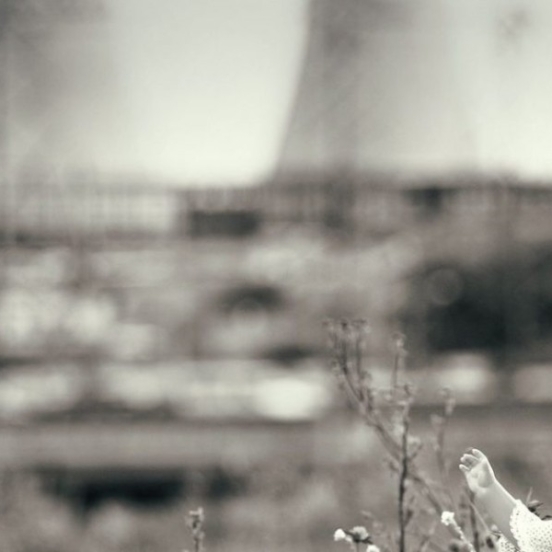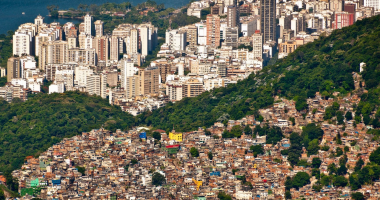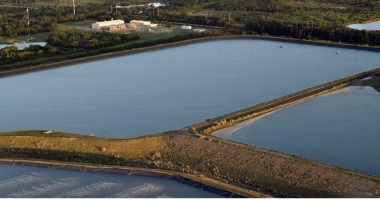Climate, Health and Equity Brief
Pollution death estimates double, pollen escalates and glaciers slide
February 12, 2021

The Climate, Health & Equity Brief is GMMB’s take on the week’s news on the current impacts of climate change. If you haven’t subscribed yet, you can do so by clicking here.
Hot Topic: Life or death. New research out of Harvard dropped a bombshell this week with study results showing that 20 percent of global deaths in 2018—nearly one in five and more than double previous estimates—were attributable to particulate matter pollution from the burning of fossil fuels.
According to researchers, previous studies relied on satellite and surface observations to estimate airborne particulate matter concentrations—but those observations couldn’t differentiate between fossil fuel particles and those from dust, wildfire smoke or other sources. With this study, researchers turned to a 3-D model that allowed them to divide the globe into 31 x 37-mile sections to assess hyperlocal pollution specifics. This new model found the Eastern United States to be one of the areas of the globe most affected.
Yet another study out this week found that since 1990, the annual U.S. pollen season has lengthened by 20 days and pollen concentrations have increased by an average of 21 percent, extending and intensifying seasonal misery for millions of Americans. In addition to exacerbating respiratory conditions like asthma, experts warn that high-pollen periods are associated with greater susceptibility to respiratory contagions, including the COVID-19 virus.
And the threats posed by extreme weather continue. In the Himalayas, where glaciers are now melting twice as fast as they were just 20 years ago, a horrific landslide barreled down the mountainside on Sunday, snapping and washing away a hydroelectric dam, killing 31 people and leaving nearly 200 missing and feared dead. And a new study confirmed that California’s annual wildfire season continues to grow longer due to warming temperatures. This is terrible news for the state, where last year more than four million acres burned and air quality plummeted to some of the worst levels in the world.
Finally, studies this week in the journals The Lancet and Nature confirm that even more catastrophic effects of climate change are on the horizon unless countries significantly increase their emissions reduction goals. With the next UN Climate Change Conference set for the end of this year, all eyes will be on global leaders, including the U.S., to introduce and follow through on greater commitments for the health of the planet and its people.
— Matt & Traci, GMMB
Health
A new report analyzing the impact of air pollution on public health revealed that exposure to particulate matter from fossil fuel emissions accounted for nearly one in five total global deaths in 2018. (CNN)
A new study found that since 1990, planetary warming has lengthened the annual U.S. pollen season by 20 days and increased pollen concentrations by 21 percent on average, exacerbating asthma and other respiratory conditions. (The New York Times)
A new study found that unless countries increase their current emissions reduction targets under the Paris Agreement by 80 percent, the decreases will not be enough to limit planetary warming to 2°C and avoid the most catastrophic effects of climate change. (The Washington Post)
New research from The Lancet shows that millions of lives could be saved annually by 2040 if the nine nations that are home to half the world’s population—including the U.S.—raised their climate ambitions to meet the Paris Agreement targets. (TIME)
At least 31 people have died and nearly 200 remain missing in the Himalayas following a glacial landslide in the region. (AP News)
According to a recent study, California’s annual wildfire season is growing longer as climate change creates drier conditions into the Fall and delays the state’s Spring rainy season by nearly a month compared to the 1960s. (The Mercury News)
Equity
Democratic members of the House Energy and Commerce Committee have introduced an environmental justice bill that would provide $100 million in EPA funding to address public health disparities from pollution. (Axios)
President Biden has instructed federal officials to submit a report on climate-related migration that examines “options for protection and resettlement of individuals displaced directly or indirectly from climate change.” (Aljazeera)
Politics & Economy
Echoing President Biden’s whole-of-government approach to combating climate change, Democratic lawmakers are preparing a “whole-of-Senate” approachthat will push for climate legislation in the Agriculture, Environment and Public Works and Finance Committees. (The Washington Post)
Congressional Republicans are threatening to block the confirmation Rep. Debra Haaland—President Biden’s nominee to lead the Department of Interior, who would become the first Native American cabinet secretary if confirmed—calling her support for a moratorium on oil and gas drilling “radical” and a threat to U.S. jobs. (The Washington Post)
Action
South Korea announced a $43.2 billion plan to build the world’s largest wind power plant by 2030 as part of broader commitments to a green COVID-19 recovery and achieving carbon neutrality by 2050. (Reuters)
Kicker
Want some inspiration on how to have a green Valentine’s Day this year? Check out these tips.






